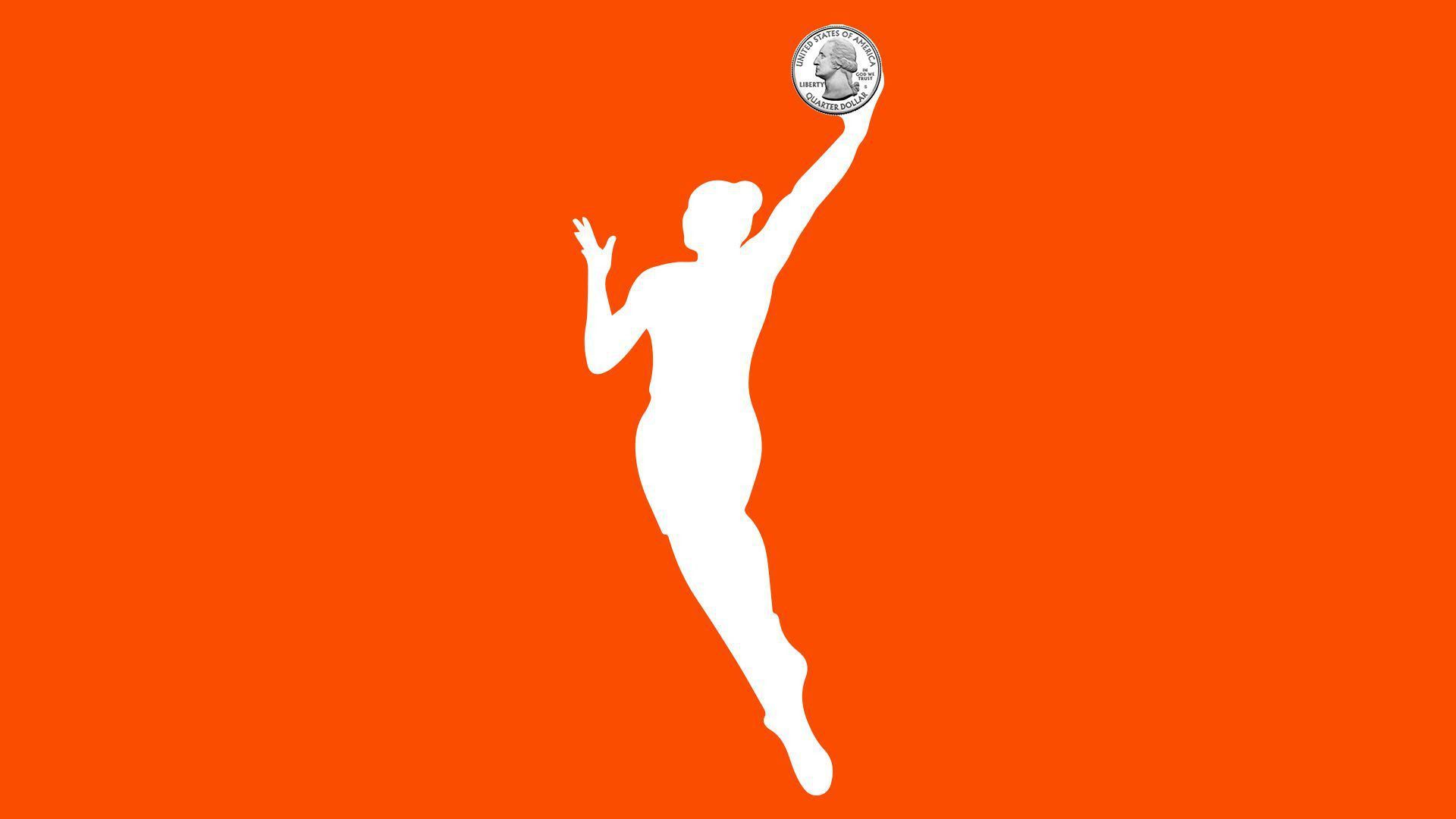The "WNBA model" isn't necessarily the best for future women's sports
Add Axios as your preferred source to
see more of our stories on Google.

Illustration: Rebecca Zisser/Axios
The battle for the future of women's hockey is between one side (NWHL) that wants to stand on its own and another side (PWHPA) that wants to be affiliated with the NHL — similar to how the WNBA is affiliated with the NBA.
Yes, but: The "WNBA model" has evolved and is no longer what it used to be, so mentioning it as an example of the latter model's success is somewhat misleading.
By the numbers: In the midst of the best WNBA era to date, seven of the league's 12 teams are independently owned and have no NBA affiliation — proof that owners see value in the product on its own.
Between the lines: The NBA's "what's mine is yours" business approach was a boon in the WNBA's early days, but now that the league has the star-power and brand recognition to attract sponsors of its own, it can hurt business.
- Prime example: On an episode of HBO's "The Shop," WNBA star Sue Bird gave the example of "Shoe Company A" signing a deal with the NBA that includes exclusive WNBA rights.
- "Shoe Company A" is funding the WNBA but has no real incentive to market it, since their contract is with the NBA. "Shoe Company B" might show up with a full-blown WNBA marketing strategy, but the WNBA can't sign with them because "Shoe Company A" already owns exclusive rights.
In other words: "When the NBA leverages its relationships, it helps. When the NBA tosses the WNBA in as a sweetener for its own deals, it hurts," writes The IX's Erica Ayala.
The bottom line: The "independent" model vs. the "aligned with established men's league" model are often presented as the only two paths forward for women's sports. But it's a lot more complicated than that.
Go deeper: Coronavirus causes delay in WNBA season and training camps
